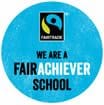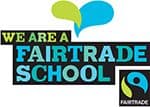S1/S3 English
Course Overview
Our Broad General Education course in S1-3 is designed to deliver progress in the Experiences and Outcomes. Pupils will have the opportunity to develop skills in Reading, Writing, Talking and Listening
The course is designed to ensure that all pupils:
- engage with a broad range of increasingly complex texts
- develop and apply knowledge and understanding of language
- find, use and organise information, including developing critical literacy skills
- use reading and listening strategies to understand, analyse and evaluate texts
- create texts of increasing complexity using more sophisticated language.
Progress will be measured using the Benchmarks.
Methodology
In S1 classes will be set from September and new classes usually begin after the September weekend. Classes are broad-banded. Class teachers will use the following information to inform their decision regarding recommendations for classes: primary school CfE levels, NSA levels, an unseen non-fiction reading assessment, a brief writing exercise and comprehension work done on “The Pied Piper”. An IDL reading skills unit will also be taught in September in S1 to give pupils strategies in coping with texts and to raise awareness of how these reading skills can apply to all other subjects. Classes in S1-S3 will be reviewed at key points in the year to ensure that pupils are in the class which most suits their needs.
Outcomes
S1-3 pupils could complete, at least, the following outcomes each year:
- 2 critical essays. Pupils should cover a full range of genres including prose, poetry, drama and a media text.
- Personal writing
- Creative writing
- 1 example of persuasive writing ( Science-based project in S1, IDL project with Social Subjects in S2 )
- 1 solo talk
- 1 group discussion
- Close Reading unit
Pupils would also be expected to cover other types of writing throughout the year allowing them to write in a wide variety of formats such as a report, letter, newspaper report, diary, blog, web-page etc.
Writing can be first draft only but some opportunities to redraft writing should be given.
Assessment
Pupils will be assessed in a variety of ways. The Curriculum for Excellence provides opportunities for pupils to be assessed in formal and informal situations. The English course also provides opportunities for peer and self-assessment, in addition to teacher assessment of pupil work. The ability to self-edit work is a key feature of the Curriculum for Excellence and means that first drafts of work may not always be completely corrected by the class teacher but may be peer/self-edited to allow pupils to develop in this area. Solo talk, group discussion and presentations to the class may also be assessed by peers to allow pupils to become more familiar with the skills required for success. Close reading exercises also form part of the assessment of progress.
Furthermore, after more formal assessments, pupils are given feedback which includes comments indicating areas they have succeeded in and areas for development. These comments are then recorded in a Pupil Profile which allows pupils to track their progress. Pupils are encouraged to include their own comments about their work in the profile as well as indicate how the skills they have learned are relevant to other subjects. At key points in the year pupils may be asked to reflect on their learning and set themselves targets. The Pupil Profile and more formal pieces of work are kept in a Good Work folder.
Recording & Reporting
Book Bingo forms the regular homework for S1-2. Pupils should engage in personal reading at home for at least 30 minutes a week. Pupils may do their personal reading in short blocks of 5-10 minutes throughout the week or in one reading session. Reading beyond the 30 minute minimum for homework is very much encouraged! Parents can sign the reading record in their child’s planner to indicate that personal reading homework has taken place. In addition, pupils have the opportunity to complete activities which ask them to think about their personal reading in a variety of ways. Each activity will form a square in the pupils’ Book Bingo card which is in their planner. Pupils should aim to complete their Book Bingo card to win awards.
In addition staff can give additional home study such as:
- Preparation for a solo or group talk
- Preparation for a class assessment
- Research on a topic
- Completion of work begun in class
- Undertake work based on the class text/unit
- Close reading or grammar work
Resources
http://www.bbc.co.uk/skillswise/english
http://www.bbc.co.uk/bitesize/ks2/english/spelling_grammar/
http://www.funenglishgames.com/grammargames.html
http://resources.woodlands-junior.kent.sch.uk/interactive/literacy2.htm
www.englishonline.org.uk/games/gamezone2.htm
http://www.scottishbooktrust.com





